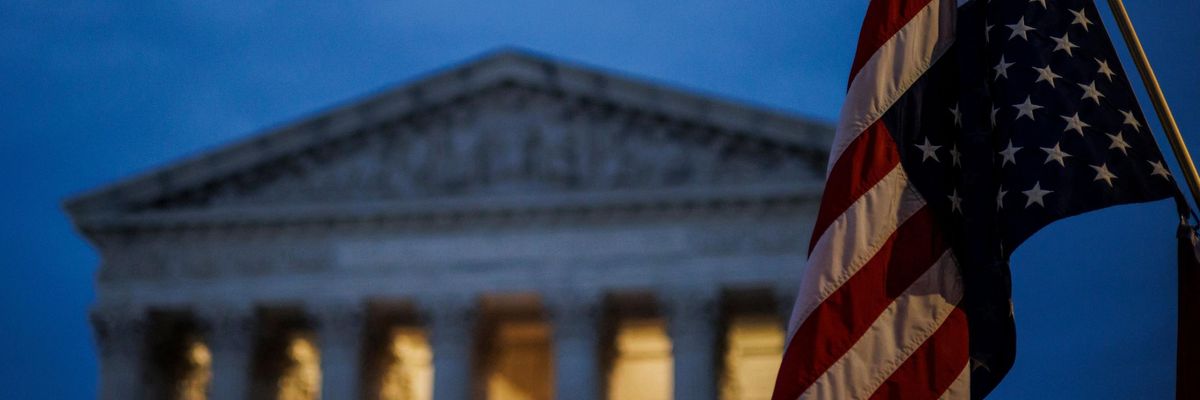Since the U.S. Supreme Court overturned Roe v. Wade this summer, red states have rolled out a series of ever-harsher anti-abortion laws.
Islamophobia has become so institutionalized that even when an issue does not remotely pertain to Islam, as in the reversal of Roe, Americans find the need to bring up Muslims.
The justices who overturned Roe and the lawmakers who are rushing to restrict people's bodily autonomy are almost all conservative Christians. Yet some liberal commentators have condemned these restrictions by likening their perpetrators to Muslims.
Since the ruling, social media platforms like Twitter have been flooded with political cartoons and tweets depicting the Supreme Court justices as Muslims or members of the Taliban. Several media organizations published pieces making the same Taliban comparison, which was also echoed by liberal celebrities like Barbra Streisand and progressives including Mark Ruffalo.
As a matter of fact, Islam does not condemn abortion in a clean-cut way. Like other communities in the U.S., Muslim Americans' views on abortion are diverse and divergent. Many Muslims are pro-choice -- and feel justifiably frustrated when people use lazy and careless Islamophobic rhetoric to condemn Christian nationalism in the United States.
It's important to address why Americans often bring up Islam when conservative legislation involving gender rights is debated in the United States.
The post-9/11 era brought about a massive onslaught against Muslims in the United States and globally. "War on Terror" enthusiasts strategically crafted stereotypes that demonized Muslim men as terrorists and Muslim women as hopeless damsels in distress, in turn making military operations in Afghanistan appealing to some American liberals and progressives by casting it as necessary to "protect" Afghan women.
These perceptions have consequences: Islamophobic policies enacted and supported by both liberal and conservative politicians. While it's true that institutionalized Islamophobia in the United States is more rooted in the right, liberal politicians are not immune from the influence of our often racist, Islamophobic society either.
Islamophobia has become so institutionalized that even when an issue does not remotely pertain to Islam, as in the reversal of Roe, Americans find the need to bring up Muslims. Along with stripping the right to reproductive freedom from all pregnant people, including Muslims, the Christian right's attack on abortion rights is somehow also solidifying stereotypes about Muslims as the standard for religious extremism.
As far back as the Oklahoma City bombing, when early reports spread suspicion that the perpetrator was an Arab American man, there's been a tendency for the press to leap to conclusions about Muslims without evidence. Gradually, the press has become more careful about making such assumptions. The Black Lives Matter uprisings in 2020, greater concerns about representation, and the rise in white far-right terrorism post 9/11 may have contributed to this shift.
But clearly, the shift is incomplete.
Islamophobia should not have been a go-to response to the reversal of Roe. Instead, the Supreme Court and extremist lawmakers can be criticized for their Christian extremism -- something which also threatens Muslims.
In fact, apart from harsh new abortion restrictions, we have seen the rise of Christian nationalism through the election of racist, Islamophobic politicians like Lauren Boebert and the Conservative Political Action Conference welcoming anti-Muslim populist and president of Hungary Viktor Orban as a speaker this year.
There's more at stake here than microaggressions. Islamophobic stereotypes were key to securing some center-left support for disastrous decisions like the invasions of Afghanistan and Iraq and the broader "War on Terror." Innocent Muslims around the world have suffered the consequences.
As the right's Islamophobia becomes ever more dangerous, we must address this often careless and lazy Islamophobia on the left as well.

